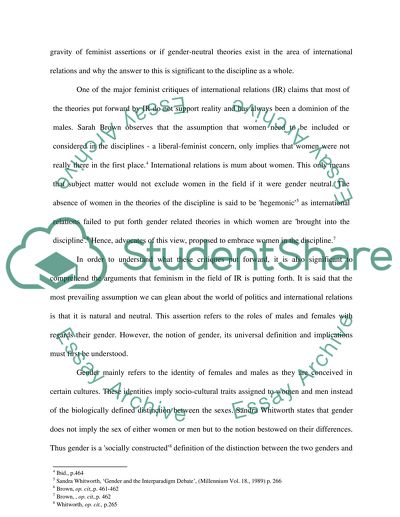Cite this document
(“International Relations - feminist movement Essay”, n.d.)
International Relations - feminist movement Essay. Retrieved from https://studentshare.org/miscellaneous/1513015-international-relations-feminist-movement
International Relations - feminist movement Essay. Retrieved from https://studentshare.org/miscellaneous/1513015-international-relations-feminist-movement
(International Relations - Feminist Movement Essay)
International Relations - Feminist Movement Essay. https://studentshare.org/miscellaneous/1513015-international-relations-feminist-movement.
International Relations - Feminist Movement Essay. https://studentshare.org/miscellaneous/1513015-international-relations-feminist-movement.
“International Relations - Feminist Movement Essay”, n.d. https://studentshare.org/miscellaneous/1513015-international-relations-feminist-movement.


